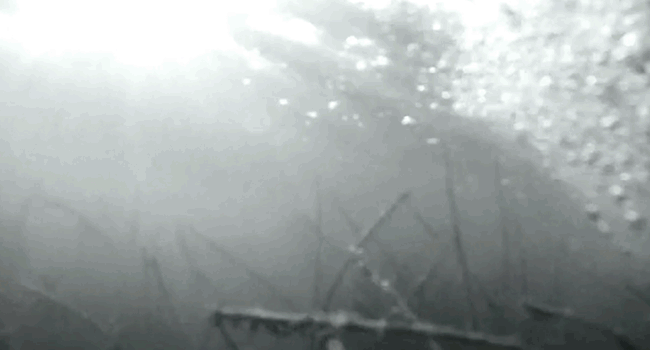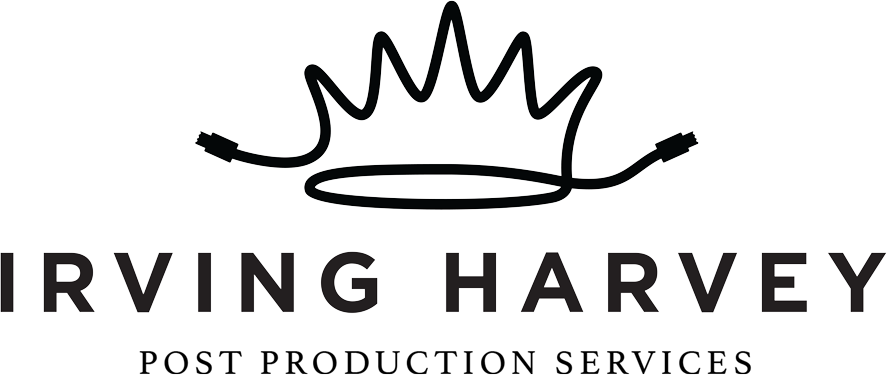
Reinaldo Arenas
2011
Lucas Leyva
The true story of the last few hours in the life of an unintentional immigrant, as told by a dying shark.
Lucas Leyva created this film for Borscht 7.
PRESS
"In Reinaldo Arenas, the grotesque news story of a shark left in the middle of downtown [Miami] became a beautiful metaphor for an immigrant’s displacement in the Magic City." Miami New Times
GIFS
essay
Cartilaginous Fish Out of Water
by Nathaniel Sandler
"This divorce between man and his life, the actor and his setting, is properly the feeling of absurdity." - Albert Camus, from The Myth of Sisyphus
Anyone who grew up near a coast has watched a fish die. Suffocation, brute force, by the knife—these are all roads to extinguishment upon this portion of the interspecies trough, whether for feeding or not. You saw it on the swirling reddish fiberglass deck of a wet boat, the fresh catch's blood mixing with salt and water while leaking to holes in the stern near the looming presence of the outboard. Or perhaps it was cudgeled to death on a nameless brown dock with its guts dripping the sea worn planks down into the bay. Maybe you watched it die in a bucket or a cooler, breathing and pulsating desperately on its side, confined briefly (yet for that fish forever), to a terror ridden and ominous immovability. In all of these situations, the poor beast's only defense is a flop, and only a small percentage of the time the impotent fish flop returns the creature to safety under the cresting waves. Typically, it does not.
If we anthropomorphize this, we get the oft-utilized analogy of a "fish out of water". The most obvious usage being when it's yelled at particularly elusive prey in the friendly poolside game of Marco Polo. Not surprisingly, there is never the word "CARTILAGINOUS" in front of the accusatory phrase "FISH OUT OF WATER." A cartilaginous fish out of water is intensely unwieldy, and even dangerous. Cartilaginous fish typically refers to sharks, though rays and skates apply too. These are often seriously aggressive and dangerous animals to touch. A cartilaginous fish flop can have unpleasant consequences.
They all fall within the scientific classification of chondrichthyes, which are distinctive for having a jaw, chambered hearts, paired fins, and most importantly skeletons made of cartilage. One of greatest adaptations to life in the sea that chondrichthyes made is flexibility, which has helped them glide quietly through the depths for hundreds of millions of years. We always learned, quite awesomely, that the age of dinosaurs also knew the resiliency of sharks, giving us a link to a past long ago.
More recently, in the summer of 2009, one particular cartilaginous fish met it's untimely demise, somewhere, and somehow, in downtown Miami. Two men, called "vagrants" in the news, dragged a five foot long nurse shark ostensibly out of Biscayne Bay, on to the MetroMover railway, and then around downtown Miami a bit before giving up on their quest. This moment was painted as cruel by the media and it was. There was evidence of torture; the majesty of a creature whose forebears once swam with plesiosaurs erased as it sat festering one night summer night on a Miami street, covered in bugs feeding on its fetid carcass.
So we come to the short and touchingly dark Reinaldo Arenas, a filmic retelling of that infamous moment in Miami's intricate and habitually strange narrative. The film, produced by in 2010 for the Borscht Film Festival is named after a Cuban exile poet and depicts an old Cuban man, musing on his path as an ex-patriot. The subject matter is dark. It is a man expressing himself empty of meaning and confused by his place. He is first on an unnamed wharf, staring at the sea, lamenting his life and landscape. The poet, whose words the script are based on, first came to Miami, a place which was not fond of and often spoke harshly about.
The physical actor depicted in the short is actually filmmaker Lucas Leyva's father, and the voice of the shark is Alberto Ibarguen, President and Chief Executive Officer of the Knight Foundation, an organization that is the single largest funding arm of the Borscht Corporation and all of its own tentacles. The filmmaker's father and the film festival's symbolic father are the two main characters. It's homage to Leyva's childhood, and lifetime, those who brought him into this world and fostered his body and identity. Both men are Cuban.
Then, the Kraken comes out of the water. We see the old man on the train holding the shark, as if a bag of groceries, something that is feeding him yet we know it is the opposite. We find ourselves witnessing a completely ridiculous moment that once actually happened, but is now repurposed as a symbol of Cuban exile and a heavy weight to carry.
A landscape such as Miami requires a certain Camusian acceptance of the absurd. How can you live here when people treat life and nature sometimes with such flippancy and disrespect other than to shrug emptily and stare at the deepest part of the abyssal trench? Motives be damned with someone you can"t or choose not to comprehend. Whether by language, culture, physical distance, or the brief and daily practice of our own existential parodies, we all stand apart. It is not just Cuba, or Miami Beach, or Sunset, Fisher, Star, Palm, La Gorce, Indian Creek, Brickell Key, or Key Biscayne. Like Fowles said every man is an island. And if Sisyphus carries a rock up a hill continually throughout his tragic existence, then for inexplicable reasons Miami, and its countless Cuban exiles carry a shark. But for similarly incomprehensible reasons Miami takes the shark on a light-rail train and then leaves it in the street to slowly and sadly rot.
PREMIERE
Slamdance Film Festival, 2012
SCREENINGS
Slamdance Film Festival, 2012
SXSW Film Festival, 2012
New Orleans Film Festival, 2012
Glasgow Short Film Festival, 2014
Cinequest Film Festival, 2012
Florida Film Festival, 2012
Viequez International Film Festival, 2016
Gasparilla Film Festival, 2015
Cineglobe Film Festival, 2015
IFP Center, 2015
Key West Film Festival, 2013
CFC (Canadian Film Centre) Film Festival, 2012
Incubate Netherlands Film Festival, 2012
HBO New York Latino Film Festival, 2012
Raindance Film Festival, 2012
Athens Film Festival, 2012
Boston Latino Film Festival, 2012
Indie Grits Film Festival, 2012
Arlington Film Festival, 2012
San Diego Latino Film Festival, 2012
Extremely Shorts Film Festival, 2012
Cucalorus Film Festival, 2012
Borscht Corporation
Borscht Special Projects
Calle 27 #601 e/ C y D, Vedado
La Habana, 10400, Cuba

 Borscht Corporation
Borscht Corporation











